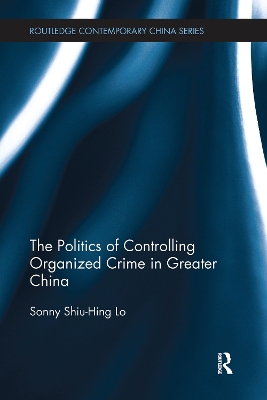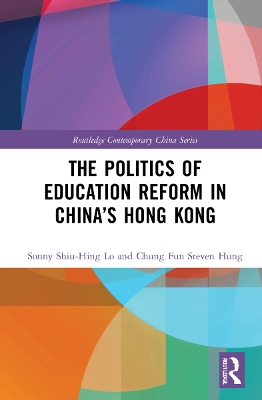Routledge Contemporary China
2 total works
The Politics of Controlling Organized Crime in Greater China
by Sonny Shiu-Hing Lo
In China, the central government has the political will to control organized crime, which is seen as a national security threat. The crux of the problem is how to control local governments that have demonstrated lax enforcement without sufficient regulation from the provincial governments. The development of prostitution, underground gambling and narcotics production has become so serious that the central government has to rely on anti-crime campaigns to combat these "three evils".
This book explores the specific role of government institutions and agencies, notably the police, in controlling organised and cross-border crime in Greater China. Drawing heavily on original empirical data, it compares the both the states of the People’s Republic of China and Taiwan, as well as city-states Hong Kong and Macao. This region has become increasingly economically integrated, and human interactions have been enhanced through improved trade relations, tourism, and increased individual freedom. The book argues that the regime capacity of crime control across Greater China has been expanded through regional and international police cooperation as well as anti-crime campaigns. It suggests that a strong central state in China is necessary to rein in the local states and to prevent the risk of deteriorating into a political-criminal nexus.
Focusing on regime capacity in crime control, regime autonomy from crime groups, and regime legitimacy in the fight against organized crime, this thought-provoking book will be of great interest to students and scholars of Chinese politics and criminology more broadly.
The Politics of Education Reform in China's Hong Kong
by Sonny Shiu-Hing Lo and Chung Fun Steven Hung
Education reform has become a highly political issue in the Hong Kong Special Administrative Region (HKSAR) since the transfer of sovereignty to the People's Republic of China (PRC).
Lo and Hung focus on the political struggles among stakeholders, including the government of Hong Kong, the Catholic Church, parents, students, teachers, the central authorities of Beijing, and even the bureaucratic politics between Beijing, the Hong Kong government and the Examination Authority. They examine the key elements of education reform in the HKSAR, including language and curriculum reform, national security education, civic and patriotic education, the rise of the pro-Beijing education elites and interest groups, and the revamp of examination questions and examination authority. The entire education reform in the HKSAR has pushed the Hong Kong education system toward a process of mainlandization, making Hong Kong's education system more similar to the mainland system with emphasis on political "correctness" in the understanding of Chinese national security, history and culture.
Highlighting the political struggles among the various stakeholders, this book is essential for scholars of Hong Kong and China, especially those with an interest in the relationship between education and politics.

